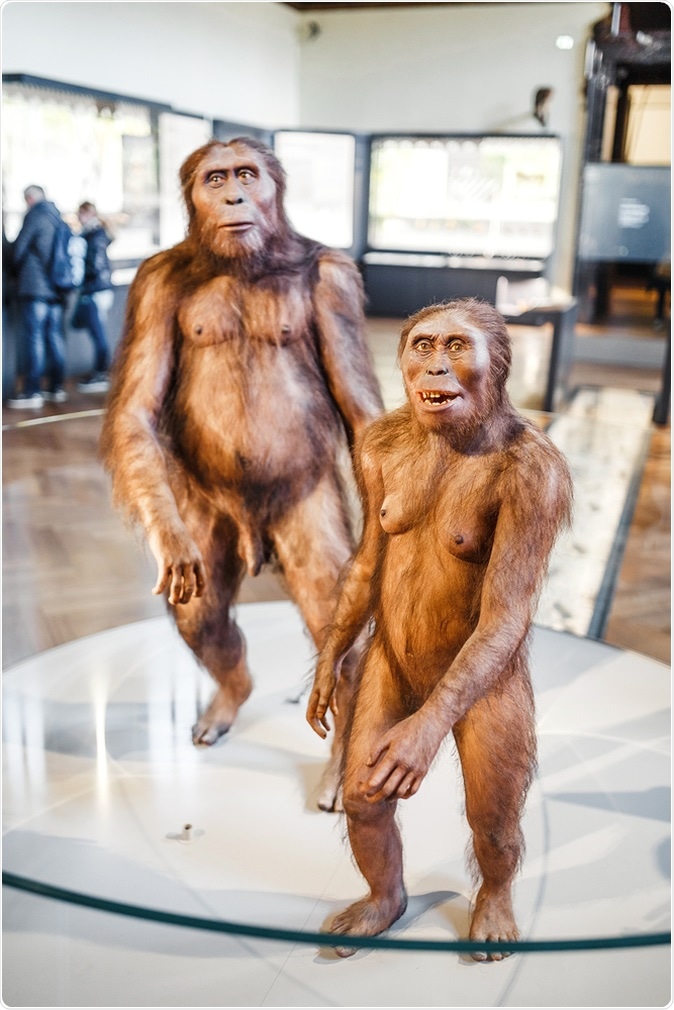Aug 27 2018
By Dr Ananya Mandal, MD
It has been long speculated that humans or Homo sapiens are the reason why Neanderthals are extinct. A new study that was published this week has negated this idea stating that it could be climate change that wiped out the Neanderthals and not humans.
The researchers explain that the Neanderthal populations were already sharply falling around 40,000 years ago when they disappeared altogether. For their research, they reconstructed the climate of prehistoric central Europe from the stalagmites from two caves in Romania. They analyzed the possible changes that the climate changes could have had. What they found was that the region had faced at least two periods of extreme cold climates that could have been worse than the Ice Age. This occurred around the time when Neanderthals disappeared according to the information researchers have from the fossil records. These regions were the main areas where the Neanderthal populations had concentrated before.

Two ancient prehistoric man and female Neanderthal. Image Credit: frantic00 / Shutterstock
According to the researchers there has been a split between Homo sapiens and Neanderthals around 500,000 to 700,000 years ago. While humans moved to Africa and continued to evolve, Neanderthals stayed in Eurasia between areas from Europe to Siberia and the Middle East. Evidence shows that the Neanderthals went extinct very soon after modern humans started migrating from Africa to Middle East and Europe around 65,000 years ago. There is evidence also of violence and cannibalism between the two groups which have made researchers speculate before that humans could have had a hand in killing off the Neanderthals. There are also speculations that there could have been intense inbreeding between the two species and the genetic abundance of the humans could have wiped off the Neanderthal species altogether. Either ways, humans have been blamed for extinction of the Neanderthal species.
The latest study titled, “Impact of climate change on the transition of Neanderthals to modern humans in Europe,” appeared in the journal Proceedings of the National Academy of Sciences (PNAS).
Both the geological and archaeological findings point to the fact the there were episodes of extreme cold climates that killed off the Neanderthal populations. Humans did have a hand say the researchers. Humans with their expanding territories into Neanderthal lands could have helped to wipe them off completely. Michael Staubwasser, a professor of isotope geochemistry at the University of Cologne, in Germany, and the lead author of the study said that this study can safely take the responsibility off from human shoulders.
The two stalagmites analyzed belonged to a cave near the Danube valley and a cave in the Carpathian Mountains in the north of Romania respectively. Bogdan Onac, one of the authors and a paleoclimatologist from the University of South Florida, explained that these stalagmites contained a detailed evidence of the climate changes during the thousands of years that they formed. Onac explained that there is precipitation of the calcium carbonate that creates the stalactites and stalagmites. When this occurs the oxygen isotopes from the rain and the carbon isotopes the water on the ceilings and floors of the caves are retained. These signatures provide information about temperature, climate and weather changes. It can also say if the rains came from the Atlantic Ocean or the Mediterranean Sea, he explained. The carbon can predict if the soil is rich or is bacteria ridden, barren or dry etc.
On analyzing these two stalagmites, the researchers noted that Central and Eastern Europe faced two major very cold and dry periods around 44,300 to 43,300 years ago and then again around 40,800 to 40,200 years ago. These periods or stadials have already been documented in earlier digs in Greenland. According to Staubwasser the cold periods seemed to have affected Europe as is evident from this study. He said that Europe could have transformed from“open woodland to a cold steppe” – a frozen and barren land. This could have wiped out the hunter-gatherers that lived in these regions. The authors write in this paper that during archaeological digs they noted that the periods of stadials showed no bones, tools or signs of Neanderthal habitation or “sterile layer”. Humans began appearing at the end of the first stadial. Some Neanderthals who survived the first stadial seemed to have failed to survive the second time round say the researchers.
There have been speculations before as to humans being the sole cause for Neanderthal extinction. This study proves that other factors were clearly playing a role. Climate change has also been speculated before. This is the first time a study has actually proven that climate change could have been responsible for the extinction.
Source:
Impact of climate change on the transition of Neanderthals to modern humans in Europe | Michael Staubwasser, Virgil Drăgușin, Bogdan P. Onac, Sergey Assonov, Vasile Ersek, Dirk L. Hoffmann, Daniel Veres | Proceedings of the National Academy of Sciences Aug 2018, 201808647; DOI: 10.1073/pnas.1808647115 http://www.pnas.org/content/early/2018/08/21/1808647115